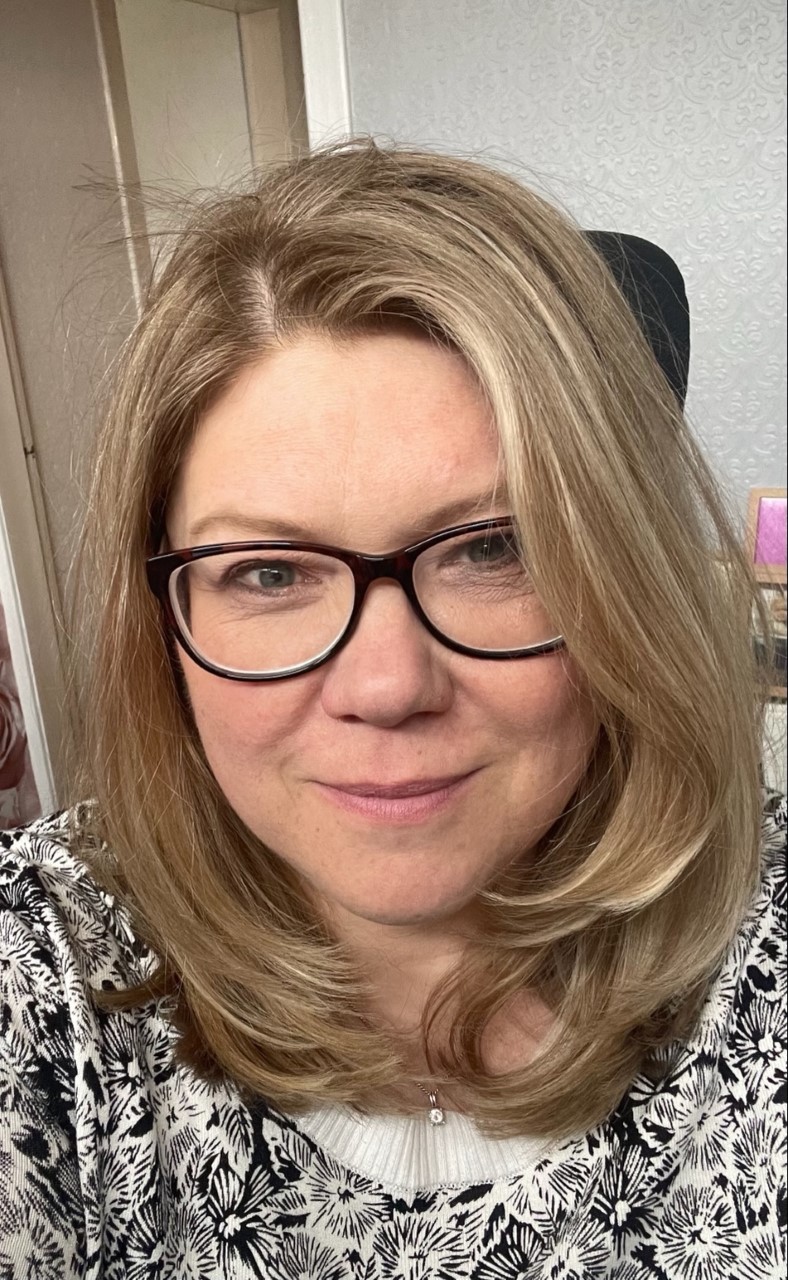All change: from placement to job offer
By Fiona Marshall - Posted on 9 December 2021
Fiona Marshall regretted not going to University when younger – now, after two degrees at Strathclyde, she explains how her SBS Masters placement led to a job offer and new career path.
After working in financial services for 25 years, the time had come for me to go back to full time employment as my children were both at high school. I knew I did not want to do what I was doing full time so I would need to re-assess my life.
My biggest regret in life was not going to university after I left school; there and then I realised the only person who could change that was me so I applied for the one-year pre-access course at Strathclyde and the rest is history.
I successfully completed the course which allowed me to apply for and be accepted to study a BA (Hons) in Human Resource Management and English at Strathclyde. I loved my four years as an undergraduate and graduated in June 2020 with a First-Class Honours degree - words cannot describe how elated I was.
The end of my course should have allowed me to change my career however, with the start of the pandemic, fear had set in within me. I did not want to leave a job where I now had 30 years’ service because of all the uncertainty. I also knew I did not want to let all my learning go to waste which made me start to look at different options.
After investigating the alternatives, the Masters course was the logical choice since Human Resource Management was the field I wanted to enter. I chose Strathclyde because of my undergraduate experience, the fantastic staff within the Work, Employment, and Organisation department, the reputation of the University’s Business School and the fact that the course was accredited by the CIPD (Chartered Institute of Personnel and Development).
The Masters programme covered various topics all of which are relevant in the ‘real world’ of employment. In addition to the modules delivered by the teaching staff, there was also a Business Skills module which provided practical exercises delivered by professionals such as negotiating skills, excel, and disciplinaries and grievances. These additions make the course more rounded and valid for future experiences.
As part of our integrated dissertation and research report process, we had to find a placement in an organisation for eight weeks after which we would conduct research for our dissertation. There were different options to arrange this: independently or by applying for the opportunities made available by the department.
I treated this process as I would for any job and when any vacancy was made available, I researched the company, assessed their values, and considered whether it was something I thought would be engaging and be able to give my best to. When the vacancy was advertised for Kanthal, the job description had me intrigued and I wanted to learn more. I was also very interested to learn how a Scandinavian Company was run in comparison to a UK based company.
Once I decided that this was the placement I was most attracted to, I ensured my covering letter and CV showed me in the best light to secure getting to the next stage. I was one of three chosen to be interviewed; again, I treated this like any other interview I have had and did my homework on the company as well as having questions prepared to ask the interviewer. I was very fortunate to discover that same day that I had been successful in attaining the placement.
The placement was of great benefit as it provided insight into how a Human Resource department works and the different roles that are covered. The experience also helped with the remaining modules, allowing details to be put into context. I had the advantage of a wonderful mentor at the company who encouraged me throughout and continues to support me. She gave me tasks that pushed me out of my comfort zone whilst guiding me which allowed my confidence to increase.
I treated my placement like any paid employment by being punctual, working hard, reporting in regularly, asking for and accepting constructive criticism, and treating any tasks confidentially. This allowed me to gain the most from the experience.
I completed my placement from January to March and then after my exams in April, my placement manager approached me to offer me a full-time job as a Human Resources Adviser. When making the offer, she explained that the way I conducted myself throughout the placement and my willingness to take on any task given to me convinced her I would be a great fit for both the team and the business.
If I was to give any advice to current and perspective students embarking on a placement, my key learnings would be choosing a placement that interests and excites you, treat it as you would any paid employment, and to grab every opportunity with both hands as the experience will be invaluable for your future skills.
All my university experiences have been at Strathclyde, and I can honestly say that applying for that Access course was the best decision I ever made. I have now graduated after six years with a BA (Hons) in Human Resource Management and English, MSc in Human Resource Management, as an Associate of the CIPD, and with friends and memories I will keep with me always.
I would also add never let your age be a barrier - I started my learning journey at 42 and the friends I made ranged from age 20 to 32. Never once did I feel out of place as we were all there for the same reason - to learn and better ourselves. Thank you Strathclyde, I’ve loved my time with you.










